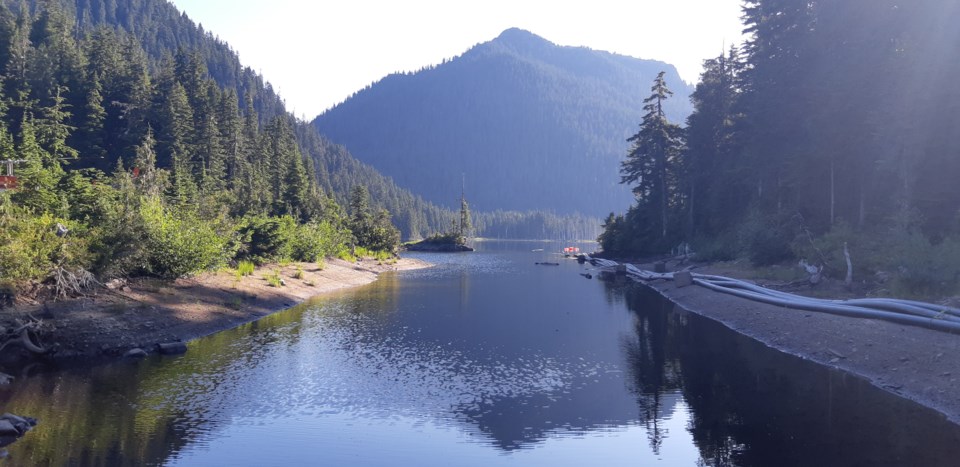Editor:
A short-term solution to our summer water shortage, which is almost free of cost, exists via a managed reduction in the environmental flow needs (EFN) in Chapman Creek.
The current minimum EFN in Chapman Creek is 200 litres per second (200 l/sec). This equals 1.7 times the daily domestic water consumption out of Chapman Lake during the summer months.
On Sept. 27, 2022 the SCRD reported that an emergency reduction in the EFN, down to 160 l/sec had been approved “until Stage 4 Water Restrictions are rescinded or until salmon are confirmed to be migrating upstream.”
A 40 l/sec reduction in the EFN means that for every three days this reduced EFN is in place, one more day of water is available for domestic consumption.
It appears that the primary need for an EFN of 200 l/sec occurs when salmon are confirmed to be migrating upstream, which occurs for short periods of time primarily in August and September.
This begs the question, “Why is the EFN not being reduced to 160 l/sec from late May or early June when Chapman Lake begins to be drawn down, until salmon are confirmed to be migrating upstream?”
If the EFN could be reduced to 160 l/sec for the period from late May until mid-August this would represent approximately 75 days of reduced EFN which would impound 25 more days of domestic water supply available out of Chapman Lake.
Twenty-five days of additional supply would have been very valuable during last year’s water emergency and would be equally valuable every year.
If the SCRD is making every conceivable effort to attempt to make this EFN reduction a reality, my request is that the SCRD openly share the details of its efforts and the roadblocks it may have encountered, with the public.
Bob Michor,
Sechelt



